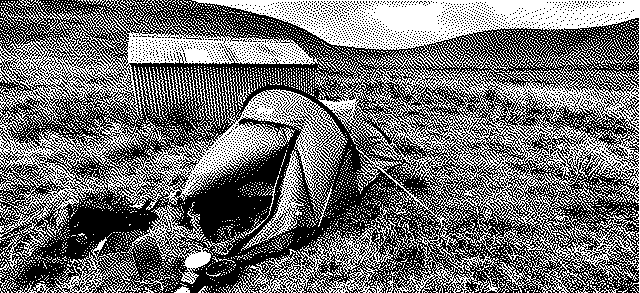It is a folly to expect men to do all they may reasonably be expected to do

I live in Northumberland, one of the most sparsely-populated counties in England. In fact, at a mere 64 people per square km, there’s only five places less populated. To put that into perspective, areas of London tend to have between 10,000 and 15,000 people per square km. Yet both Northumberland and London are aiming to achieve ‘net zero’ by 2030. One of these targets is ambitious.
You’ll forgive me for looking at Northumberland County Council’s (NCC) Climate Change Action Plan 2021-23 and raising my eyebrows at the list of the ‘progress’ made since the last report:
- Decarbonising council fleet vehicles (without explaining what this actually means)
- Installing 12 public EV points
- Giving away 15,000 free trees
Fair enough, there has been the Covid-19 pandemic to deal with. And yes, there are a mere 322,000 people living in the county. But still, this is unambitious in the extreme. If you weren’t, like me, seeking out this information, you would be living your life oblivious that the council declared a climate emergency two years ago.
As I shared on extinction.fyi earlier today, BBC News reports that many councils who have declared a climate emergency have policies inconsistent with their goals. Here in Morpeth, the county town of Northumberland where I live, a school was knocked down and replaced with a car park. All parking is free here, so parents drop their kids at school and go shopping. Rural buses are noisy, antiquated, polluting vehicles that people avoided even before the pandemic.
Perhaps I’ve missed the meaning of ’emergency’?
Last week, the IPCC report painted a stark picture for human survival on this planet. A few days later, an NCC climate change newsletter included this as its second paragraph:
According to the report the Earth is projected to hit 1.5 degrees Celsius of warming by 2030, a full decade sooner than previously thought. If we do everything right, we can go back down to 1.4°C by 2100.
I’m not sure how someone can read the IPCC report and have that as their main takeaway. The main suggestion in the newsletter is that Northumberland residents take a look at a dashboard that NCC has created in Tableau. For my postcode, it’s suggested that the average house would need to plant 34 trees. The trouble is, of course, that carbon offsetting doesn’t work. Also, the other proposal, that we replace our combi gas boiler with an air source heat pump, would not only cost us thousands, but would need a backup in cold weather.
So I’ve been in touch with the climate change programme manager at NCC expressing my dismay at the tone of this newsletter and the paucity of ambition. Counties like Northumberland should already be carbon negative and certainly need to be by 2030. To have the same goal as huge cities like London (to be net zero) by 2030 shows a real lack of leadership.
As a side note, I’ve tried to find other non-council bodies doing work in the North East of England. There’s Climate Action Network Northumberland which put pressure on NCC to declare a climate emergency. Sadly, they seem to only exist on Facebook and (from what I can see) talk about recycling and sharing news from elsewhere. Then there’s Climate Action North East which have zero upcoming events listed on their website — although they did get back to me via Twitter DM to explain how Covid has affected their organisation. Other than that, all I can find is Blyth Valley Climate Action via the Friends of the Earth website who merely have a contact form.
When I got in touch with NCC I made it clear that I’m willing, presumably along with plenty of other people, to invest time and energy to helping Northumberland get beyond net zero. In my case, a day per week. But without an architecture of participation, everything is down to ‘engagement’ with the council which is a codename for ‘controlled interactions’. Having a climate champions programme might sound useful, but in reality it acts as a bottleneck to action. As I sometimes ask new clients, especially charities and NGOs, “what would you do if a thousand volunteers showed up tomorrow?” The trouble is that too many organisations, NCC included, wouldn’t have a clue.
There’s an NCC climate event at the end of September which I’ve been asked to wait for so that I can be be told how I can get involved. I’m used to working with others at the kind of pace where, in five weeks time, we could have a whole new network up and running… 🤔
Dithered image based on an original by Karsten Würth. Quotation-as-title by Archbishop Whately.

